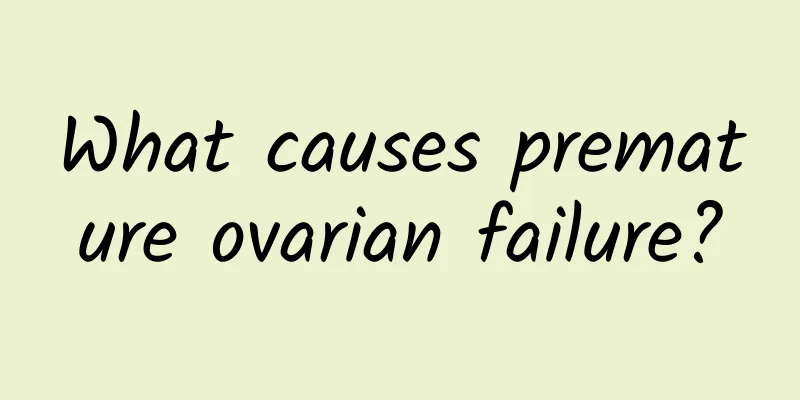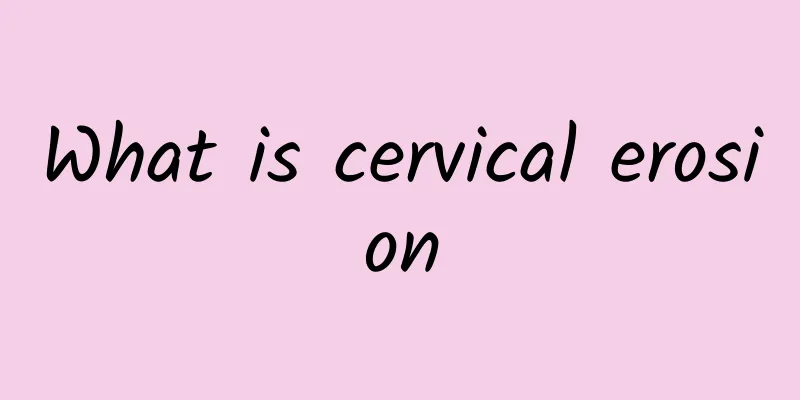What are the consequences of enlarged uterine fibroids? What should I do if my uterine fibroids enlarge?

|
Uterine fibroids are a common gynecological disease. They are lumps formed by the proliferation of smooth muscle cells in the female uterus. When uterine fibroids grow larger, they often have a certain impact on the female body. So, what are the effects of enlarged uterine fibroids? The following is a detailed answer for you. First of all, the enlargement of uterine fibroids can cause irregular menstruation. The enlargement of fibroids can cause the uterine cavity to deform, thus affecting the normal menstrual outflow channel, which can easily lead to menstrual disorders and stagnation of menstrual blood. During menstruation, female friends may experience prolonged menstruation, increased menstrual flow, and shortened menstrual intervals. Secondly, the enlargement of uterine fibroids can cause pain symptoms. As the fibroids grow, they will compress nearby tissues and organs, causing abdominal and back pain, and even a feeling of falling. Sometimes it is accompanied by uncomfortable symptoms such as sexual intercourse pain and difficulty urinating, which brings great physical and psychological burdens to women. In addition, the enlargement of uterine fibroids can also cause anemia. As the fibroids grow, the endometrial tissue will thicken, affecting the normal flow of menstruation. Long-term heavy menstruation can easily cause anemia in women. Anemia can cause women to experience symptoms such as dizziness, fatigue, and palpitations. In severe cases, it can also affect the quality of life and work efficiency. So, what should you do if your uterine fibroids grow larger? First of all, you should seek medical attention in time. Once you find that you have symptoms of enlarged uterine fibroids, you should go to the hospital for a gynecological examination as soon as possible. The doctor will use B-ultrasound, CT and other imaging examinations to confirm the size and location of the fibroids. Secondly, you should choose a treatment method based on the doctor's advice. Depending on the size of the fibroids, symptoms, and personal needs, the doctor will propose different treatment plans, including conservative treatment, endocrine drug treatment, interventional treatment, and surgical treatment. Finally, female friends are reminded to pay attention to daily care and the adjustment of living habits. Maintaining good health, eating a healthy diet, eating more fiber-rich foods, avoiding excessive fatigue and emotional stress, and maintaining good living habits can help slow down the growth of uterine fibroids. In summary, the enlargement of uterine fibroids will have certain effects on women's bodies, including irregular menstruation, pain symptoms and anemia. Therefore, when women find that they have enlarged uterine fibroids, they should seek medical attention in time, choose appropriate treatment methods, and pay attention to daily care and adjustments in lifestyle habits. Only in this way can they better protect their health. |
<<: What are the symptoms of early uterine fibroids?
Recommend
What are the dangers of pregnancy with uterine fibroids? Will pregnancy with uterine fibroids have adverse effects on fertility?
Pregnancy with uterine fibroids has adverse effec...
Does pelvic effusion affect the uterus?
Will pelvic effusion affect the uterus? 1. If pel...
How to distinguish between vulvar leukoplakia and vulvar eczema
How to differentiate between vulvar leukoplakia a...
What are the symptoms of enlarged uterine fibroids? What will happen if the uterine fibroids are enlarged?
What are the symptoms of enlarged uterine fibroid...
Improve edema and puffiness by eating coix seed and winter melon
Ms. Li often works overtime at the company and ha...
What are the tests that need to be done for endometriosis?
For the sake of future fertility, many women now ...
Protein deficiency is a problem. Dietary supplements are better than drug supplements.
[Key Points]: Protein is one of the six major nut...
How to treat Nabothian cyst
Nabothian cyst is a common benign lesion that usu...
What should patients pay attention to in their diet after uterine fibroid surgery?
What should patients pay attention to in their di...
If you don't want to gain weight when drinking ice cream in summer, calculate the calories of ice cream first
In the hot summer, swimming and eating ice cream ...
What are the most common cases of bleeding after abortion in early pregnancy?
In the early pregnancy, the amount of bleeding du...
Will pelvic inflammatory disease cause gastrointestinal reactions?
Pelvic inflammatory disease is a very harmful dis...
Double yolk Cantonese mooncake 800 calories like eating chicken drumstick bento
The Mid-Autumn moon is round, the mooncakes are r...
How is bacterial vaginosis diagnosed?
For bacterial vaginosis, laboratory tests are ver...
Experts introduce several typical symptoms of vaginitis
There are several different types of vaginitis, a...









